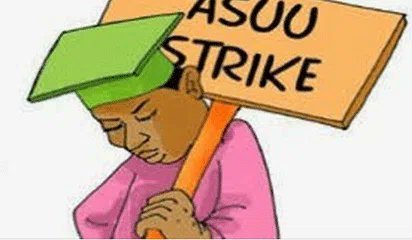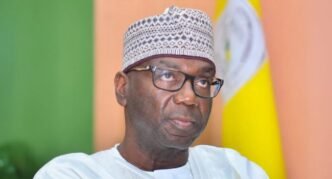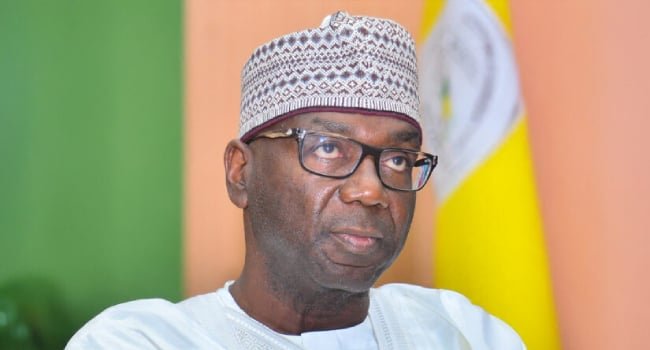ABUJA — The Academic Staff Union of Universities (ASUU) has issued a fresh warning that Nigeria may experience a nationwide shutdown of public universities if ongoing negotiations with the Federal Government continue to stall. The union, which recently suspended a two-week warning strike, says it is running out of patience as critical issues remain unresolved despite years of negotiation and repeated promises from government officials.
The development has revived anxiety among students, parents, administrators, and stakeholders in the education sector, with many worried that the country may once again witness a prolonged industrial action that could paralyze academic activities in federal and state universities.
A Struggle Rooted in Long-Standing Demands
ASUU’s grievances with the Federal Government are not new. For more than a decade, the union has consistently insisted on the full implementation of the 2009 ASUU–FGN Agreement, which covers funding for university revitalisation, improved welfare for lecturers, and reforms in university governance.
According to ASUU leaders, the Federal Government has repeatedly failed to honour commitments made during previous renegotiations, resulting in a cycle of strikes, partial concessions, and renewed disputes.
Among ASUU’s current demands are:
- Comprehensive renegotiation and implementation of the 2009 Agreement
- Payment of three-and-a-half months of withheld salaries
- Immediate release of third-party deductions such as cooperative contributions and union dues
- Settlement of salary arrears and outstanding promotion arrears
- Sustainable funding for revitalisation of public universities
- An end to the alleged victimisation of lecturers at several universities
- A more realistic salary structure that reflects inflation and the economic realities faced by academic staff
The union argues that these issues are essential to restoring stability and improving the quality of Nigeria’s higher education system.
The Two-Week Warning Strike and Its Suspension
ASUU’s frustration reached a breaking point when it declared a two-week warning strike in mid-October. The strike followed the expiration of a 14-day ultimatum issued to the Federal Government, during which the union demanded visible progress on renegotiations and fulfillment of earlier promises.
The warning strike halted academic activities across many campuses, triggering public concern and prompting emergency meetings between ASUU’s leadership and government negotiators.
Following intense discussions, ASUU’s National Executive Council agreed to suspend the strike. The union said it was giving the Federal Government a one-month window to implement concrete measures addressing its demands. However, ASUU made it clear that the suspension was not a sign of capitulation and warned that another strike could begin without further notice if the government failed to act.
In statements issued after the NEC meeting, ASUU leaders expressed disappointment with the government’s proposed salary structure and insisted that the offer fell far below what had been agreed in earlier renegotiation drafts.
Union Leaders Sound a Stern Warning
Several ASUU officials across different zones have issued stern warnings about the looming crisis. Leaders from the Ibadan, Bauchi, and Abuja zones have described the government’s approach as inconsistent, slow, and dismissive of the union’s concerns.
The union maintains that Nigeria’s public universities are struggling due to poor funding, inadequate facilities, and low morale among academic staff. Leaders warn that unless urgent steps are taken, the country risks further deterioration in university education, worsening brain drain, and declining global competitiveness.
ASUU accuses some government officials of misinforming the public about the progress of negotiations. According to the union, payments of promotion arrears or partial settlement of withheld salaries should not be mistaken for comprehensive solutions.
The union also insists that the government’s negotiation team must return to the principles agreed in previous draft documents and not present proposals that undermine or dilute core objectives of the 2009 Agreement.
Why the Stalemate Persists
1. A History of Unmet Promises
ASUU argues that the Federal Government has not demonstrated enough commitment to past agreements. Renegotiations that began under previous administrations have dragged on without implementation, creating distrust and tension each time talks resume. The union claims that the government often prioritises temporary fixes rather than structural reforms.
2. Funding Deficits in Public Universities
One of ASUU’s primary concerns is the chronic underfunding of universities. Many campuses operate with outdated laboratories, inadequate lecture halls, insufficient staff, and poor research support. ASUU believes the government should prioritise revitalisation funds rather than establishing new universities that further stretch limited resources.
3. Poor Lecturer Remuneration and Brain Drain
Nigerian academics remain among the lowest paid globally. Many highly skilled lecturers have emigrated in search of better working conditions and pay. ASUU stresses that without competitive salaries, universities cannot attract or retain top talent, and students’ quality of education will continue to decline.
4. Governance and Autonomy Issues
ASUU advocates greater university autonomy, reduced bureaucratic interference, and transparent governance structures. The union believes political appointments, inconsistent policies, and administrative bottlenecks undermine academic freedom and institutional efficiency.
Implications of a Potential Shutdown
A nationwide shutdown would have profound consequences across multiple layers of society:
Students and Families
- Academic calendars will be disrupted, delaying graduations and exams.
- Final-year students may face uncertainty in job applications, scholarships, or postgraduate admissions.
- Families bear emotional and financial strain as education timelines shift unpredictably.
Universities and Staff
- Universities may struggle to maintain research momentum, accreditation cycles, and partnerships.
- Lecturers working on international collaborations could face setbacks.
- Administrative processes—transcripts, admissions, promotions—may grind to a halt.
National Development
- Nigeria’s global academic reputation could suffer further.
- Brain drain may intensify as academics lose faith in long-term reforms.
- Employers could experience shortages of graduates in key fields such as engineering, medicine, and technology.
Economy and Policy Credibility
A prolonged strike raises questions about the government’s policy consistency and commitment to education reform. Investors and development partners may become wary if the education sector continues to appear unstable.
What to Expect in the Coming Weeks
With the one-month grace period running down, several key events will shape the outcome:
- Government’s Response: Whether the government presents a more acceptable proposal addressing salaries, funding, and governance reforms.
- ASUU NEC Meeting: The union is expected to reconvene to evaluate government actions and decide next steps.
- Stakeholder Mobilisation: Students’ unions, civil society groups, and parent associations may increase pressure on both parties to reach a resolution.
- Broader Education Debates: The crisis may reignite discussions about university autonomy, student fees, private investment, and long-term sustainability.
Conclusion: A Critical Moment for Nigeria’s Tertiary Education
ASUU’s warning of a possible nationwide university shutdown is more than a clash between lecturers and government—it is a reflection of deeper systemic problems in Nigeria’s higher education sector. The situation presents a test of political will, policy prioritisation, and national commitment to education as a tool for development.
The next few weeks will be crucial. If the Federal Government acts decisively, a shutdown may be averted. But if negotiations remain stalled, Nigeria could once again face a prolonged strike with far-reaching consequences for millions of students and the nation’s academic future.
The coming days will determine whether this moment becomes a turning point toward meaningful reform—or another chapter in a long cycle of crisis within Nigeria’s public universities.














